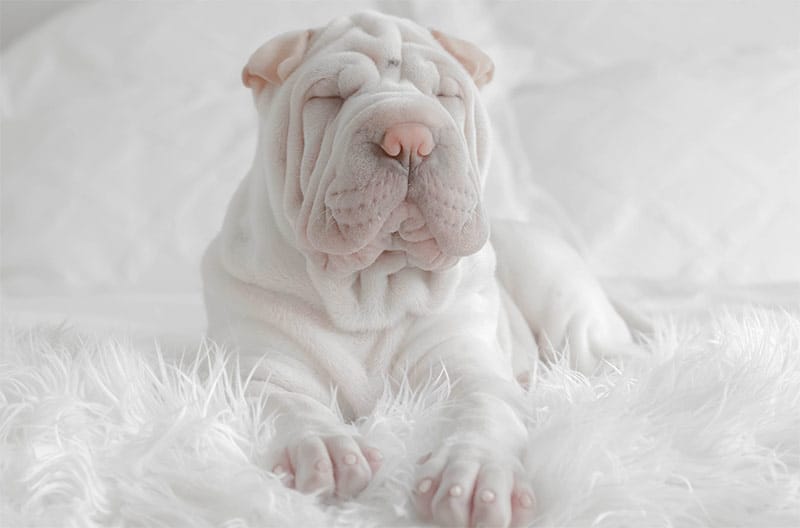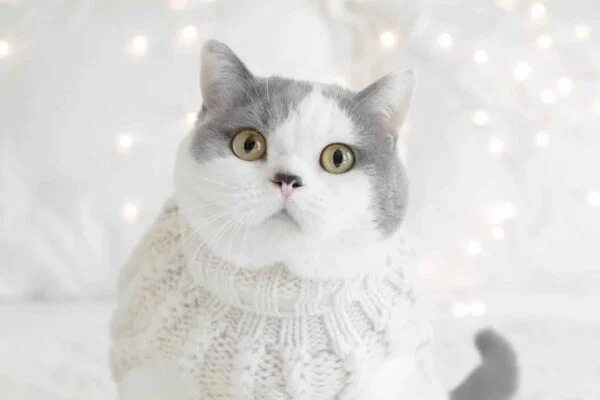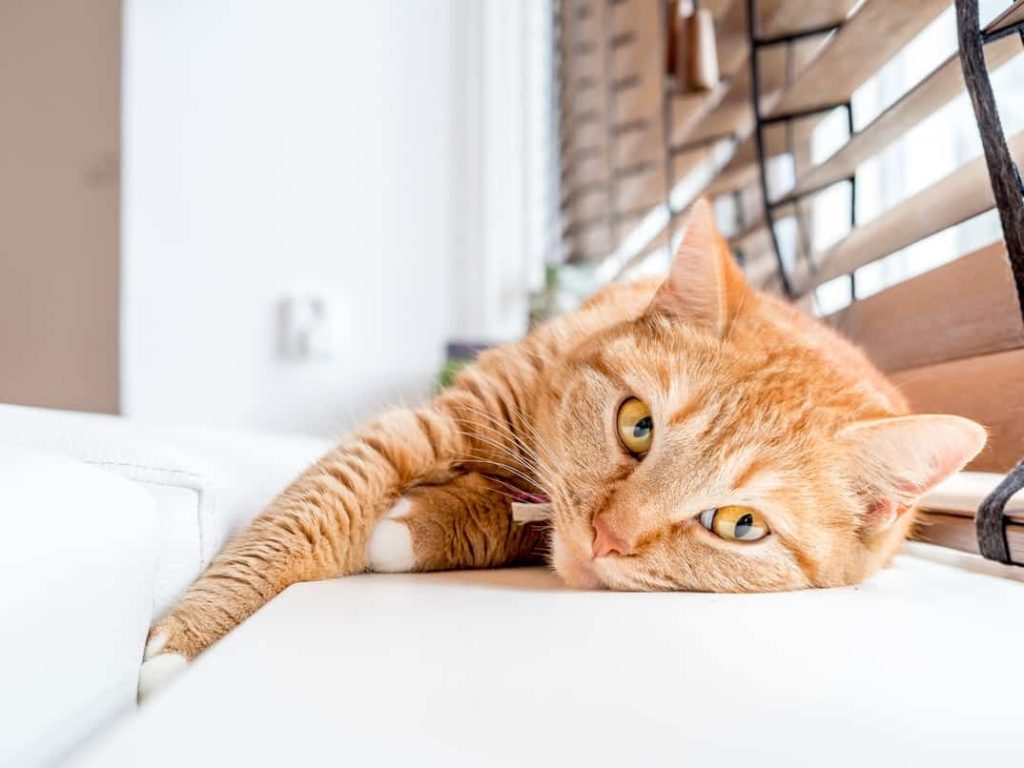The term stress is often associated with harm and health problems, when at its core, stress is a normal and even healthy reaction of the body to possible danger.
The notions of “good stress” and “bad stress” have appeared to differentiate two radically different states!
“ Bad stress ” is linked in humans to the functioning of today’s society and to unnatural rhythms.
In cats and dogs, “bad stress” has also made its appearance!
Unfortunately, the harmful consequences of our lifestyles, geared towards constant performance, weigh on our pets.
Real emotional sponges, they store our anxieties in addition to their own, faced with a world to which they have difficulty adapting!
To help your feline, we explain everything you need to know about stress in cats .
What is stress ?
Definition
Good stress
Stress is, originally, a reaction of the organism to an aggression , an event with the aim of ensuring the survival of the individual.
Stress is synonymous with an alarm or alert reaction, and requires taking action.
Typically, stress can, for example, allow you, in the event of an attack, to mobilize your resources to flee far from the aggressor.
This definition corresponds to “good stress”, that is to say that which has a positive function for the individual.
Good stress, even for humans, evokes an instinctive register, that of the innate.
Bad stress
Alongside good stress, the notion of “bad stress” has appeared in our modern society to describe a new phenomenon, acquired and no longer innate.
Bad stress is an excessive mobilization of resources without utility and without generated action.
For example, if you are stressed by the pile of files that accumulate on your desk at work, it will be of no use.
It will not help to end the situation because you do not control the external elements and your boss will continue to overload you with files.
This bad stress will therefore turn against you and, what’s more, it will make you less focused, less efficient and therefore even more overwhelmed and more stressed.
Stress in cats
Stress in cats takes exactly the same form as it does in humans .
Basically, good stress allows him to flee from danger or to attack when he is outside, and thus ensures his survival.
However, the bad stress that will take hold of him when a baby arrives at home, for example, will be of no use.
He won’t be able to run away, nor put it out. The bad stress will turn against him.
What are the symptoms of stress in cats?
A stressed cat will present certain specific symptoms depending on its personality :
- Frequent meows , rather long and loud.
- Compulsive licking of the paws, belly and tail can lead to hair loss and lesions.
- Urinating outside the litter box.
- Marking with claws (often vertical) on furniture and walls which serves to reassure the cat when it loses control of its environment.
- The appearance of stereotypies such as repeated gestures for no reason (chasing one’s tail, touching an object) or sudden hyperactivity. This is the feline version of human obsessive-compulsive disorder (OCD).
- A refusal of caresses showing a rejection of contact and which could make him aggressive if the caresses persist.
- Eating disorders such as anorexia ( cat no longer eats ) or bulimia (cat eats compulsively).
- The development of infectious diseases as a result of the weakening of the immune system caused by stress.
- Behavioral disorders linked to the accentuation of his hypersensitivity and his anxiety: self-mutilation (pulling out hair, biting, absorbing dangerous elements), hyperreactivity to environmental stimuli, aggressiveness (begins to spit, hiss, bite, scratch, bristle his fur).
What causes stress in cats?
Since there can be multiple causes of stress in cats , it is not always easy to isolate the reason for the discomfort.
Asking about recent changes in your lifestyle and observing your behavior can help you identify the factor triggering your stress.
1. The arrival of a new individual in the house
Whether it’s a newborn or a new pet, your cat may become stressed about the arrival of a new individual in the house.
Indeed, the cat needs secure landmarks that do not change and it likes to control the environment and the people who live there.
The arrival of an intruder upsets the established order, makes him feel insecure and even questions his own place. Do I still have my place? Will he take my place?
2. Cohabitation between animals
Despite what one might think, understanding between members of the same family or between species is not a given !
Between cats or between cats and dogs, introductions are often very cold and even lively!
The kitten will tend to stick to this adult cat who reassures him, he who hates being forced into physical contact!
With another adult cat , contact can be spontaneous or, on the contrary, can be limited to “hello, good evening”!
With a dog , it’s different again!
The cat has no confidence in this “agitator in the jar” who tries to catch him and play with far too much enthusiasm!
Although time usually allows the amount of stress to decrease, it can also persist.
This is the case when faced with a fellow creature that is a little too invasive and encroaches on your companion’s territory and eats from its bowl.
This is the case for a dog for the same reasons but also because the cat does not always understand the reactions of the dog. They escape him and therefore make him feel insecure.
3. Welcoming guests
Guests are also often perceived as intruders who talk and laugh very loudly!
They can be accompanied by children who, just like the dog, tend to want to touch your cat, stroke it, take it on their lap like a stuffed animal!
Some cats may then become aggressive or run and hide in an inaccessible place!
4. Unfamiliar noises
The worst unfamiliar noises for animals are fireworks and firecrackers which are sudden, shrill noises.
They cause extreme stress for cats who are hypersensitive to environmental stimuli.
Noises can be much more subtle and still trigger a lot of fear.
5. A change of territory
Moving into a new house means that each member of the family will choose their room! For your cat, it’s the same!
He needs to have his own space but also to put his scent in all the rooms of the house! He thus marks his territory and chases away the old smells of the old animals!
The first few days in this new place are sources of stress , as are any work undertaken to modify your interior.
If he is left in the care of a pet-sitter, the stress will be even greater because you will not be by his side, you who constitute a fundamental point of reference!
6. A change in your habits
If your work schedule changes and therefore your presence times change , this can create stress in your feline.
Indeed, you are part of the “decor” and therefore of its territory. If your presence times change, nothing is going well!
Your cat is losing control of its territory, which makes it very insecure.
If, for example, he previously knew approximately that you were going to come home at noon, you no longer come home and so he wonders when you are going to come back! He is completely in the unknown!
7. Transport
Transport is often a source of stress for cats, whether it is by car, train or plane! There are several reasons for this:
- Integration into an unsafe environment (transport basket, smells in the train, noise, etc.)
- The sensation of movement : whatever the means of transport, your feline feels precisely the sensation of movement driven by the engine. It is an anxiety-provoking experience for him who needs to master his environment by having all four paws on stable ground!
- The cat’s memory allows it to remember the association, for example car transport/vet visit. Thus, even before knowing where it is being taken, the cat associates this transport with a bad experience to come.
8. A dietary change
Wanting to change your pet’s diet is often well-intentioned, to offer something new to counter the routine.
But you are wrong! Changing food stresses your cat who wonders if this new diet will not cause him problems!
Note that cats usually eat 15 to 20 small meals per 24 hours.
If you offer your companion one or two meals a day, this can stress him out because he will be afraid of missing out.
9. A disease
The various symptoms of an illness are manifestations against which your cat can do nothing and which stress him enormously .
Pain adds to fear because it can be sudden, throbbing and can cause fear of death. The care provided by the veterinarian generates an additional source of stress.
What are the consequences of stress in cats?
Weakening of the immune system
Stress weakens the immune system, making your companion more prone to viruses and infections . This fragility is explained by the production of cortisol generated by stress.
Anxiety and depression
If stress is repeated and becomes chronic, it turns into anxiety , that is, constant fear.
The cat is constantly hypervigilant, which creates fatigue and can cause depression when psychological resources collapse.
Stress-related illnesses
Stress plays an important role in triggering certain diseases . This is particularly the case for urinary tract infections such as feline interstitial cystitis (FIC), also called feline idiopathic cystitis .


